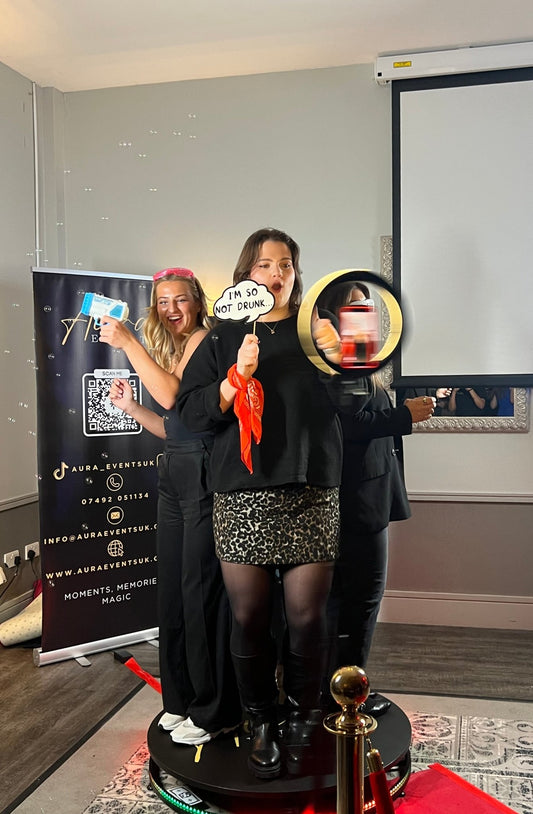Special Events UK have become a cornerstone of the events industry, blending creativity, technology, and meticulous planning to deliver memorable experiences. Whether it is corporate events, product launches, gala dinners, or team-building activities, special events in the UK are driven by data, research, and innovative strategies. This article presents a comprehensive, fact-based guide on planning and executing special events in the UK, using insights from sources such as Statista, IBISWorld, and academic research from Birmingham City University. With an emphasis on a data-driven approach, we explore market trends, key components, technological advancements, best practices, and future trends in the world of Special Events UK.
1. Introduction
The world of special events in the UK is vast and diverse. From corporate conferences and award ceremonies to private parties and brand activations, special events require a high level of planning, creativity, and technical expertise. Today’s event management companies and corporate event organisers use data and technology to streamline planning processes, ensuring that every aspect of the event is executed flawlessly.
According to Statista (2023), the UK events industry is valued at over £10 billion, with special events playing a significant role in this market. With increasing client expectations and rapid technological advancements, event management services have evolved to include hybrid events, virtual events, and immersive live experiences. As special events become more complex, the need for full-service event management that integrates planning, production, and post-event analysis has never been greater.
2. Understanding Special Events in the UK
Special events encompass a wide range of occasions designed to meet specific business or personal goals. In the UK, these events can range from corporate events such as conferences and product launches to social gatherings like gala dinners and private parties. Special Events UK are characterized by their unique objectives, which might include celebrating milestones, launching new products, building team cohesion, or enhancing brand activations.
2.1 What Defines Special Events?
- Corporate Events: These include product launches, award ceremonies, team-building activities, and brand activations. Corporate event organisers focus on creating experiences that strengthen business relationships and drive measurable outcomes.
- Social and Private Events: These events, such as weddings, parties, and anniversary celebrations, emphasize personalization and guest experience.
- Hybrid and Virtual Events: With the rise of digital technology, many events now incorporate both live and virtual elements. This approach increases accessibility and engagement, especially among international students and remote attendees.
- Memorable Experiences: Whether it is a team-building event or a corporate conference, the goal is to create experiences that resonate with attendees long after the event has ended.
Special events require careful planning, a clear vision, and a commitment to excellence. The success of these events is often measured by attendee satisfaction, client feedback, and the overall impact on brand perception.
3. Market Overview and Trends
The UK events industry is undergoing rapid transformation. Research from IBISWorld (2022) indicates that the market is growing steadily at an annual rate of approximately 4–5%. Factors driving this growth include increased consumer spending on experiences, a demand for innovative event management services, and the integration of advanced technologies.
3.1 Key Data and Figures
- Market Value: The UK events industry is worth over £10 billion, with special events contributing significantly to this valuation.
- Growth Rate: The industry has experienced annual growth rates between 3% and 5%, fueled by the rise in corporate spending and the popularity of hybrid and virtual events.
- Client Priorities: Surveys suggest that nearly 70% of clients consider venue design, event logistics, and personalized entertainment as top priorities when choosing an event management company.
- Sustainability: Research from the UK Green Events Council (2023) shows that incorporating sustainable practices can boost client satisfaction by up to 20%. Eco-friendly practices are increasingly becoming a key differentiator in the competitive landscape.
3.2 Trends Shaping Special Events UK
- Data-Driven Decision Making: Increasing reliance on event management software and real-time analytics helps planners monitor engagement and optimize every element of the event.
- Hybrid Event Models: The demand for hybrid events, which combine live and virtual components, has grown significantly. According to EventMB (2022), 65% of event planners now incorporate hybrid models to reach wider audiences.
- Technological Integration: Emerging technologies such as augmented reality (AR), virtual reality (VR), and artificial intelligence (AI) are being used to create immersive and interactive experiences.
- Focus on Experience: Beyond logistical success, the quality of attendee experience is paramount. Events with high production quality and creative design tend to receive up to 50% more positive feedback.
- Personalization and Customization: Special events that are tailored to the unique needs of clients—be they corporate brands or private individuals—are seeing increased demand. Personalized communication and event themes enhance engagement by around 25%.
These trends underline the importance of a modern, data-backed approach to planning special events in the UK.
4. Key Components of Special Events UK
Delivering exceptional special events in the UK requires attention to several critical components. Each stage, from initial planning to post-event analysis, contributes to the overall success of the event.
4.1 Detailed Planning Process
The planning process is the foundation upon which every successful event is built. It includes several stages:
-
Objective Setting:
Establish clear goals for the event. Whether the event is a corporate conference, a product launch, or a private celebration, defining objectives helps guide every decision. Goals might include boosting brand awareness, enhancing team collaboration, or celebrating significant achievements. -
Budgeting and Resource Allocation:
Nearly 70% of event challenges stem from inadequate budgeting. A realistic budget must cover venue hire, production costs, technology integration, marketing expenses, and contingency funds. Data-driven budgeting tools help forecast costs more accurately. -
Timeline Management:
A detailed timeline ensures all milestones—from vendor selection to final production—are met on schedule. Many event organisers use project management software to track progress and maintain accountability. -
Vendor Coordination:
Coordinating with a team of reliable vendors is critical. This includes securing top-quality venues, hiring experienced technical production teams, and ensuring seamless logistics.
4.2 Venue Selection and Event Logistics
Choosing the right venue is essential. Venue selection not only affects the aesthetics of the event but also its functionality and accessibility.
-
Location and Accessibility:
Venues that are centrally located and easily accessible tend to attract a larger audience. Research indicates that the right venue can improve attendee satisfaction by up to 30%. -
Facilities and Infrastructure:
Modern venues should offer robust audio-visual systems, high-speed internet, and flexible spaces that can accommodate various event formats—from large conferences to intimate award ceremonies. -
Design and Ambience:
The design of the venue, including lighting and decoration, plays a significant role in creating a memorable atmosphere. Innovative design elements help to reinforce the event’s brand and theme.
4.3 Event Production and Technical Management
High-quality production is a hallmark of successful special events. This includes everything from technical production to entertainment.
-
Technical Production:
Professional lighting, sound, and stage design are essential. Industry data shows that events with professional production services can receive up to 50% more positive feedback from attendees. -
Live and Hybrid Production:
For events that incorporate virtual components, a seamless integration of live and digital elements is critical. Real-time adjustments and backup systems ensure the event runs smoothly. -
Entertainment and Activities:
Creative entertainment, such as live performances and interactive activities, can significantly boost engagement. Data indicates that well-planned entertainment segments can enhance overall event satisfaction by up to 25%.
4.4 Marketing and Communication
Effective marketing and communication strategies are vital for attracting attendees and ensuring engagement.
-
Digital Marketing:
Over 80% of event planners now use digital channels—such as social media, email campaigns, and dedicated event websites—to promote their events. Digital marketing helps to reach a wide audience and collect data on attendee preferences. -
Personalised Communication:
Tailored invitations, updates, and follow-up communications foster a sense of exclusivity and engagement. Personalisation can increase interaction by around 25%. -
Post-Event Engagement:
Continuing communication after the event, such as sharing highlights and feedback surveys, helps build lasting relationships and improve future event planning.
5. Tools and Technologies in Special Events UK
Modern special events in the UK leverage a range of advanced tools and technologies. These tools simplify the planning process, enhance attendee experiences, and provide valuable data for continuous improvement.
5.1 Event Management Software
Event management software has become an essential tool for event planners. Its benefits include:
-
Automated Registration and Ticketing:
Software simplifies tasks such as guest registration, ticketing, and check-ins, reducing administrative errors and streamlining processes. -
Real-Time Analytics:
Real-time data on attendee behavior, engagement, and session popularity allows planners to make informed decisions during the event. A 2022 survey by EventMB noted that 65% of event planners use real-time analytics for on-the-spot adjustments. -
Integrated Communication:
These systems enable seamless communication between the event team, vendors, and clients. Integration minimizes miscommunication and ensures that everyone is updated in real time.
5.2 Virtual and Hybrid Event Platforms
With the growing demand for hybrid events, virtual platforms have become a core component of special event planning.
-
Live Streaming Capabilities:
Virtual event platforms allow live streaming of events, enabling remote attendance for international clients and remote teams. This capability expands the reach of an event significantly. -
Interactive Features:
Features such as live Q&A sessions, polls, and chat rooms enhance audience engagement and ensure that virtual participants feel part of the experience. -
On-Demand Content:
Recording sessions and offering on-demand access provides added value for attendees and serves as an excellent tool for post-event marketing.
5.3 Data Analytics and Research Tools
Data analytics plays a critical role in refining event strategies and ensuring continuous improvement.
-
Performance Metrics:
Tracking key performance indicators (KPIs) such as attendance rates, engagement levels, and technical performance helps assess event success. This data guides improvements in planning and production for future events. -
Audience Insights:
Surveys, social media monitoring, and feedback forms provide valuable insights into attendee preferences. These insights are used to tailor event experiences and meet client needs. -
Predictive Analytics:
Advanced analytics tools use machine learning to forecast trends, such as attendance or engagement levels. Research from Birmingham City University suggests that AI-powered predictive analytics can improve planning efficiency by up to 35%.
5.4 Emerging Technologies
The integration of emerging technologies continues to transform the landscape of special events in the UK.
-
Augmented and Virtual Reality (AR/VR):
AR and VR technologies offer immersive experiences, such as virtual venue tours and interactive design previews, which help clients visualize their events before they occur. -
Artificial Intelligence (AI):
AI applications in event management include vendor recommendations, personalized marketing, and real-time problem solving. These tools contribute to smoother operations and improved event outcomes.
6. Best Practices for Special Events UK
Based on industry research and data-driven insights, here are some best practices for organizing special events in the UK.
6.1 Comprehensive Research and Planning
-
Market Analysis:
Use data from sources like Statista and IBISWorld to understand current trends and benchmark performance. This research helps set realistic goals and identify opportunities for innovation. -
Audience Research:
Collect feedback through surveys and social media analytics to understand what attendees value most. Tailoring experiences to audience preferences increases satisfaction and engagement. -
Competitor Insights:
Analyze the methods of leading event management companies and corporate event organisers, such as MGN Events and ATM Events, to learn best practices in venue selection, technical production, and overall event coordination.
6.2 Building a Skilled and Collaborative Team
-
Team Expertise:
Assemble a dedicated team that includes experienced event planners, creative designers, technical experts, and vendor managers. A well-coordinated team ensures that every component of the event is executed flawlessly. -
Continuous Learning:
Invest in ongoing training programs and modules offered by institutions like Birmingham City University. Staying updated on the latest industry trends and technologies is key to maintaining competitive edge. -
Strong Vendor Relationships:
Establish long-term partnerships with reliable vendors for services such as lighting, sound, catering, and entertainment. Consistent vendor quality leads to smoother production and higher client satisfaction.
6.3 Leveraging Technology and Data
-
Adopt Advanced Tools:
Use event management software and data analytics tools to streamline planning, monitor real-time performance, and adjust strategies as needed. -
Embrace Hybrid Models:
Consider incorporating virtual components in addition to live elements to reach a wider audience. Hybrid events are increasingly popular and provide valuable data on engagement. -
Data-Driven Adjustments:
Analyze performance metrics and audience feedback after each event to identify areas for improvement. Continuous improvement based on data ensures that every new event outperforms the last.
6.4 Focusing on Sustainability and Innovation
-
Eco-Friendly Practices:
Choose venues with strong sustainability credentials and adopt practices such as digital ticketing and waste reduction measures. Sustainable events not only meet regulatory standards but also appeal to environmentally conscious clients. -
Creative Design:
Incorporate innovative design elements and cutting-edge technology like AR and VR to create immersive experiences. An emphasis on creative production sets your event apart from competitors. -
Transparent Communication:
Maintain open lines of communication with clients throughout the planning process. Clear and regular updates build trust and ensure that client needs are met from start to finish.
7. Future Trends in Special Events UK
As technology and consumer expectations continue to evolve, the future of special events in the UK looks promising. Here are some trends that are likely to shape the industry in the coming years:
7.1 Increased Use of AI and Machine Learning
Artificial intelligence will play a larger role in event planning, from predicting attendance trends to personalizing marketing efforts. AI-powered analytics can optimize every aspect of an event, leading to more efficient planning and higher client satisfaction.
7.2 Growth of Hybrid and Virtual Events
Hybrid events, which integrate live and virtual components, are expected to become even more popular. With the benefits of increased accessibility and detailed analytics, hybrid events will continue to grow, appealing to both corporate clients and private event organisers.
7.3 Enhanced Focus on Sustainability
Sustainability will remain a top priority as clients demand eco-friendly practices. Innovations in sustainable production, from low-energy lighting to digital engagement tools, will become standard practice in special events.
7.4 Integration of Immersive Technologies
Emerging technologies like AR and VR will further enhance the planning and execution of special events. These tools offer immersive experiences that allow clients to visualize event setups in advance, resulting in better planning and more memorable events.
7.5 Data-Driven Continuous Improvement
The use of real-time data and predictive analytics will continue to refine the way special events are planned and executed. With every event, organisers will be able to gather insights, learn from past performances, and make data-backed adjustments to ensure that future events are even more successful.
8. Conclusion
Special Events UK represents a dynamic and growing segment of the broader events industry. By adopting data-driven strategies, leveraging modern technologies, and adhering to best practices, event organisers can deliver exceptional experiences that meet the diverse needs of corporate clients, private individuals, and public audiences alike.
Key components for success include:
- A Detailed Planning Process: Establish clear objectives, manage budgets effectively, and coordinate timelines and vendor relationships.
- Technology Integration: Use advanced event management software, virtual and hybrid event platforms, and real-time analytics to streamline operations and enhance the attendee experience.
- Collaboration and Team Expertise: Build a skilled team and maintain strong relationships with vendors to ensure every aspect of the event is executed flawlessly.
- Sustainability and Innovation: Embrace eco-friendly practices and incorporate emerging technologies to create unique, memorable experiences.
- Continuous Improvement: Use data and audience feedback to refine processes and elevate future events.
As the events industry in the UK continues to expand, with an estimated market value exceeding £10 billion, special events remain a critical area for innovation and growth. By staying informed through reliable sources such as Statista (2023), IBISWorld (2022), and academic research from Birmingham City University, event organisers can keep pace with industry trends and deliver memorable experiences that drive long-term success and brand loyalty.
In conclusion, the future of Special Events UK is bright. Whether you are planning a corporate conference, a product launch, a gala dinner, or a private celebration, the strategies outlined in this guide provide a roadmap for creating events that are both successful and memorable. Embrace the data-driven approach, invest in technology, and prioritize sustainability to ensure that your special events stand out in today’s competitive market.


